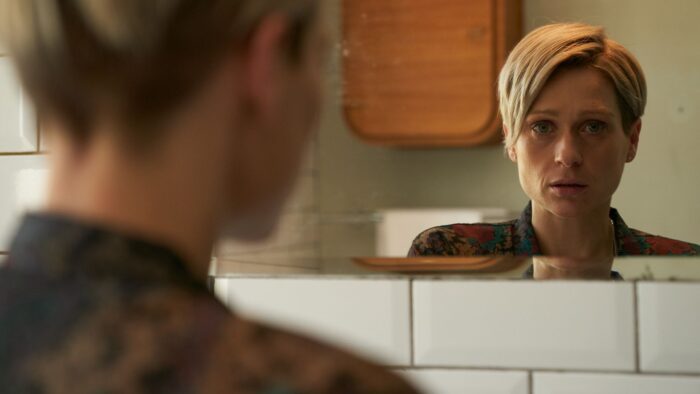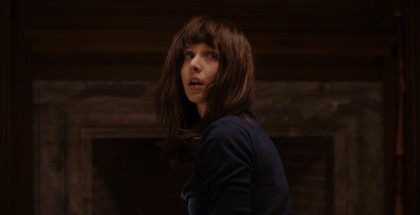Body of Water review: An intense, unflinching drama
Review Overview
Cast
8Direction
8David Farnor | On 19, Oct 2020
Director: Lucy Brydon
Cast: Sian Brooke, Fabienne Piolini-Castle, Amanda Burton, Kazia Pelka
Certificate: 15
Watch Body of Water online in the UK: Curzon Home Cinema / BFI Player / Sky Store
“It’s not about that.” It’s always about that.” That’s Stephanie (Sian Brooke) in Body of Water, Lucy Brydon’s powerful drama about a woman trying to recover from an eating disorder. We join Stephanie after she’s finished a round of treatment for anorexia and starts to reconnect with her family. It’s the not the first time she’s gone through that cycle, and it’s the first time the rest of her family have either – that’s where Body of Water finds its emotional clout, its understand of the impact Stephanie’s disorder has on both her and everyone around her.
When Stephanie reaches out once more, her daughter, Pearl (Fabienne Piolini-Castle) is living with her mum, Susan (Amanda Burton), who is preparing to marry her partner, Annette (Kazia Pelka). Her efforts to rebuild bridges with all of them – from speaking at their wedding to getting her daughter to speak to her at all – are helped, but also hindered, by her increasingly close bond with her nurse, Shaun (Nick Blood).
The cast are all superb, from Piolini-Castle’s frustrated daughter to Burton’s patient and concerned parent. The dynamics with each are given added layers by the fact that Stephanie is a full-grown adult, even as she’s infantilised by her disorder. And so we watch as she fails to compose herself during a parent-teacher meeting, while seeking validation for photos of her thin body on social media in private.
Brydon’s direction amplifies every tiny detail that the script and performances bring to the complex tale. From the sound design that emphasises chewing to something unpleasant to the way she almost looks daringly down the lens of the camera as she forces herself to work her way through a small salad, this is an almost dauntingly intense piece, fused with a raw honesty. Brooke’s lead turn anchors the whole thing with a heartfelt sensitivity, and stops things descending into melodrama or dark comedy – but descend into a wider darkness they do, with a conclusion that may prove too upsetting for some with first-hand experience of the disorder. But that final act is in keeping with a film that starts out as an unflinching exploration of a rarely discussed condition and never wavers.


















